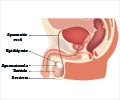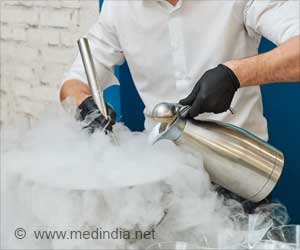- Approximately 72.4 million couples globally face fertility issues, with 60–80 million experiencing infertility, impacting 8–12% of couples
- Around 50% of infertility cases in India are attributed to male factors, highlighting the importance of addressing male reproductive health
- Male infertility is influenced by factors like abnormal sperm production, varicocele, and lifestyle choices
Recent advances in understanding and managing male infertility
Go to source). While often associated with female factors, it's time to dispel the myth that infertility is solely a concern for women. Recent data from the World Health Organization (WHO) estimates that 60–80 million couples globally currently grapple with fertility problems (2✔ ✔Trusted Source
Prevalence of Primary Infertility and its Associated Risk Factors in Urban Population of Central India: A Community-Based Cross-Sectional Study
Go to source). Surprisingly, approximately 40-50% of infertility cases involve male factors, emphasizing the need for a comprehensive understanding of male infertility (3✔ ✔Trusted Source
About Male Infertility
Go to source).
Common Causes of Male Infertility
Contrary to common misconceptions, male infertility is a complex and multifaceted issue. Dr. Sandesh Parab, Senior Urologist and Andrologist from Solaris Hospital, Thane, highlights the intricate web of factors contributing to male infertility.Abnormal sperm production or function stands out as a primary culprit, with conditions like varicocele, swelling of the testicle's draining veins, hindering sperm development and compromising fertility. Sperm motility, the sperm's ability to move effectively, is another critical aspect. Poor sperm motility can impede the sperm's journey to meet the egg, reducing the chances of successful fertilization. Structural abnormalities in the male reproductive system, hormonal imbalances, and genetic issues further complicate the landscape of male infertility. Lifestyle factors, including excessive alcohol consumption, smoking, and obesity, exacerbate the problem (4✔ ✔Trusted Source
Male Infertility
Go to source).
Dr. Parab emphasizes that a comprehensive approach is vital, involving a detailed evaluation of male reproductive health to identify specific causes.
Global Infertility Rates
WHO estimates reveal that infertility prevalence varies across regions, affecting 8–12% of couples worldwide (5✔ ✔Trusted SourceTrends of male factor infertility, an important cause of infertility: A review of literature
Go to source). However, the lack of precise global figures underscores the need for more extensive research and awareness. Understanding regional variations in infertility rates can aid in tailoring interventions and support systems.
Male Infertility in India
Delving into the Indian context, Dr. Parab refers to a recent WHO report on the status of infertility in India. Astonishingly, approximately 50% of infertility cases in the country are attributed to "male factor" infertility (6✔ ✔Trusted SourceMale infertility in India: Demographics, aetiology and outcomes of standard clinical practice
Go to source). This statistic underscores the urgent need to address male reproductive health and debunk societal taboos surrounding the discussion of male infertility.
Diagnostic Advances in Identifying Male Infertility
Advancements in medical technology have paved the way for precise diagnostic tests to identify the specific causes of male infertility. Semen analysis, hormone testing, and imaging studies provide valuable insights into underlying issues. Dr. Parab emphasizes that a comprehensive evaluation is crucial for designing effective treatment plans.Treatment Options and Holistic Reproductive Health
Treatment options for male infertility span lifestyle modifications, medications, and surgical interventions, depending on the root cause. Dr. Parab highlights the importance of comprehensive reproductive health assessments and mutual support for couples navigating the challenges of conception. Evaluating both male and female factors is integral to addressing infertility comprehensively.Male Infertility: A Call to Action
Dr. Parab advocates for a shift in societal attitudes toward male infertility. It's essential to destigmatize the discussion around male reproductive health and encourage proactive measures for improved outcomes. The journey to conception involves both partners and mutual support is crucial in navigating the complexities of infertility.Contrary to common misconceptions, many couples conceive after male infertility treatment. Dr. Parab points out that numerous reversible conditions show positive results after surgical intervention. This positive outlook emphasizes the need for early intervention and emphasizes that males should not hesitate to seek treatment for better outcomes.
In conclusion, understanding the multifaceted nature of male infertility is crucial in addressing the global fertility crisis. Breaking down societal barriers, encouraging open discussions, and promoting comprehensive reproductive health assessments are key steps in improving outcomes for couples dealing with infertility. By fostering awareness and acknowledging the significant role of male factors, we can pave the way for a more inclusive and effective approach to reproductive health.
References:
- Recent advances in understanding and managing male infertility - (https://pubmed.ncbi.nlm.nih.gov/31143441/)
- Prevalence of Primary Infertility and its Associated Risk Factors in Urban Population of Central India: A Community-Based Cross-Sectional Study - (https://pubmed.ncbi.nlm.nih.gov/31802796/)
- About Male Infertility - (https://pubmed.ncbi.nlm.nih.gov/32965929/)
- Male Infertility - (https://www.hopkinsmedicine.org/health/conditions-and-diseases/male-infertility)
- Trends of male factor infertility, an important cause of infertility: A review of literature - (https://pubmed.ncbi.nlm.nih.gov/26752853/)
- Male infertility in India: Demographics, aetiology and outcomes of standard clinical practice - (https://pubmed.ncbi.nlm.nih.gov/34341210/)
Source-Medindia
















